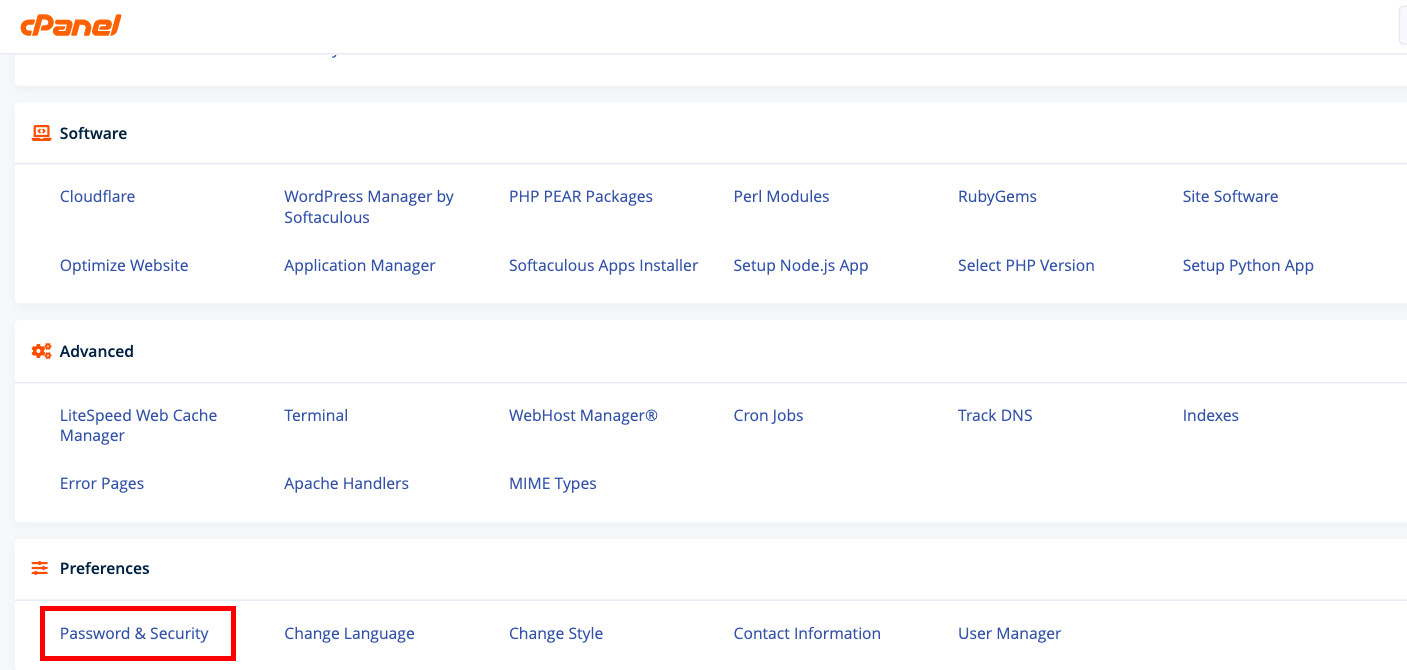This article will go over how to change your cPanel password. This password enables you to log in to your primary FTP account, SSH, MySQL, and cPanel.
How to Change Your cPanel Password
The first thing you need to do is log in to cPanel. On the cPanel home screen, you need to go to the Preferences section and click on Password and Security.

Type your current password in the Old Password text box. Then, type the new password that you want in the New Password text box. Retype the new password in the New password (Again). Lastly, you need to click on Change your password now, and immediately you will have a new password for your cPanel account. If you have forgotten your old password and you can’t access your account for any reason, please contact us for further assistance.
Alternatively you can change your cPanel password from within your client area,
- Log into your Zalvis dashboard
- Select Products & services from the bar on the left
- Navigate to the product you wish to change the password for
- Click manage product
- Click Manage
- Under Actions, click Change Password
Now you have successfully changed your password, you can log in using the new password.
How to Pick A Strong Password for Your cPanel
One important thing to remember is that you should protect your password. Choose strong passwords and change them regularly to ensure the best security for your account.
Some of the most commonly used passwords are based on hobbies, family names, or just a simple pattern or combination of words. Even though these passwords are easy to remember, they are also not as secure.
To choose a strong password, use a mixture of lowercase and uppercase letters since passwords are case-sensitive. Randomly mix up numbers and symbols with letters. You can substitute the letter A with a @ or the letter O with a zero.
If there is information about you that is easily discoverable, such as the names of your pets and relatives, your high school, city of birth, address, anniversary, or birthday, do not include them in your password. Someone can easily guess your password if you include obvious personal information in it.
Several methods are used by hackers to get into your account, and the most common way is to target you personally and type in symbols, numbers, and letters manually in order to guess your password. This process will take a longer period of time if you have a more complex and long password. Passwords that are shorter will only take a few seconds to crack.
Choosing a long password is a smart move, but what is even a smarter move is choosing a long password that includes random phrases and words. A password will be harder to crack if it is not grammatically correct; it is not a phrase that is in published literature and can’t be found in the dictionary.
If you’re having any trouble creating a new password, you can try using a password generator. Even though the result can be pretty random and it can seem like it’s hard to remember, with a little bit of practice, it can be pretty easy to memorize.